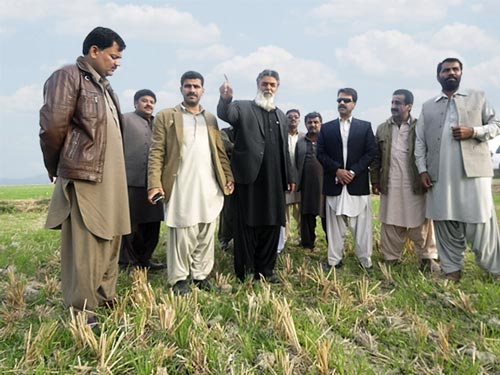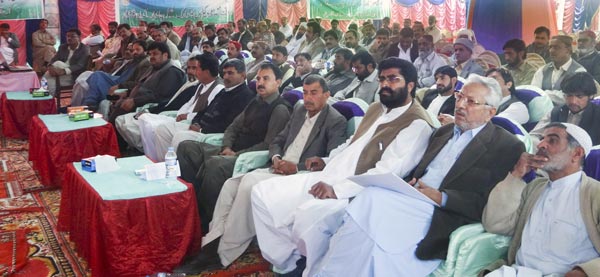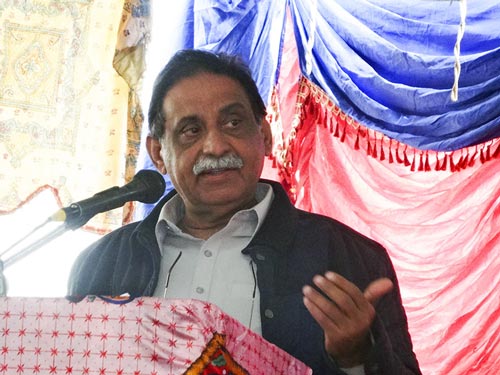
Under the Agricultural Innovation Program (AIP) for Pakistan and in collaboration with Balochistan Agriculture Research, CIMMYT has begun testing and spreading with farmers the practice known as “zero tillage” to sow wheat in Balochistan, a province in southwest Pakistan that accounts for more than 40 percent of the country’s land area but only five percent of the population.
Jaffarabad and Nasirabad are major rice- and wheat-growing districts in Balochistan. The predominant cropping systems are either fallow or rice, followed by a crop of wheat. Soils after rice are poorly-drained and hamper tilling for wheat, so wheat is not sown soon enough to avoid the high temperatures that arrive in spring, when the crop is filling grain. This seriously reduces yields.

On 10 January, more than 100 participants gathered for a field day organized by AIP in Balochistan province to promote zero tillage for wheat. Involving the direct sowing of wheat seed into residues of the preceding rice crop, with no plowing, the practice has multiple benefits for farmers, soils and water use. These include more timely wheat planting, reduced land preparation costs, higher wheat yields and increased cropping system intensity (hence, productivity), according to agricultural experts Mr. Asmatullah Taran and Mr. Mehdi Hassan.
Intended for smallholder farmers, the event also drew progressive farmers, agricultural extension specialists and researchers from the Directorate of Agriculture Research Usta Muhammad Farm, Jaffarabad District, as well as renowned parliamentarians Mr. Khan Muhammad Khan Jamali, Mr. Changaiz Khan Jamali and Mr. Mir Jan Muhammad Jamali, Speaker, Balochistan Provincial Assembly.

Dr. Muhammad Javaid Tareen, Director General of Balochistan Agriculture Research, praised AIP and partners’ efforts to promote conservation agriculture practices such as zero tillage, said the practices would improve farmers’ livelihoods in the Nasirabad Zone and called on scientists to address the Province’s crop productivity constraints. Mr. Changaiz Khan Jamali, former Federal Minister for Science & Technology, said that agricultural research must address small farmers’ concerns and provide new techniques to the farming community.
Mr. Jamali was grateful for the efforts of USAID and CIMMYT to improve smallholder famers’ incomes and assured the farmers and agricultural professionals that efforts would be made to improve research facilities and access to new technologies in Balochistan.
 Innovations
Innovations 
